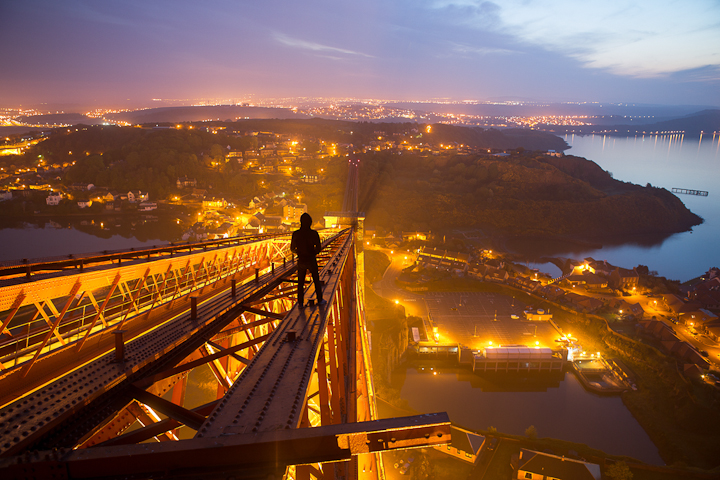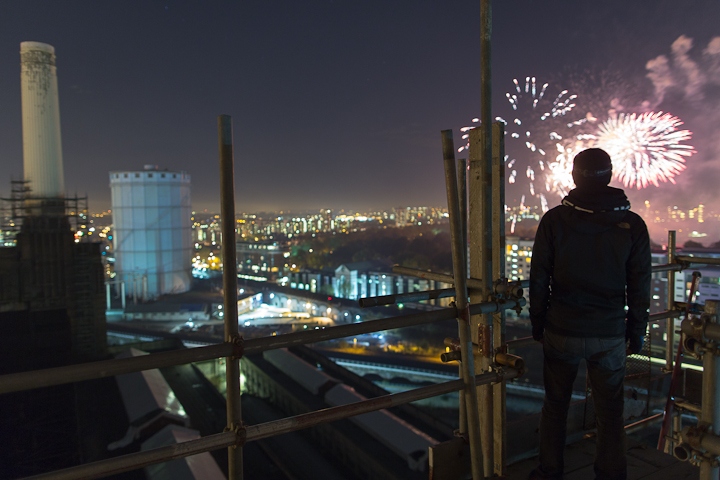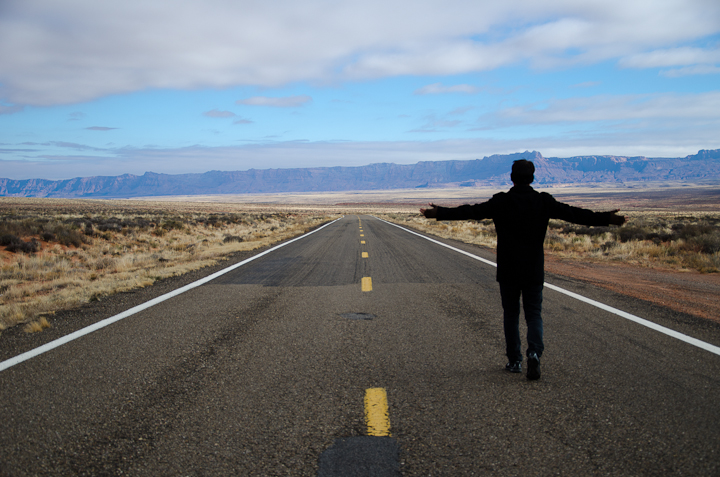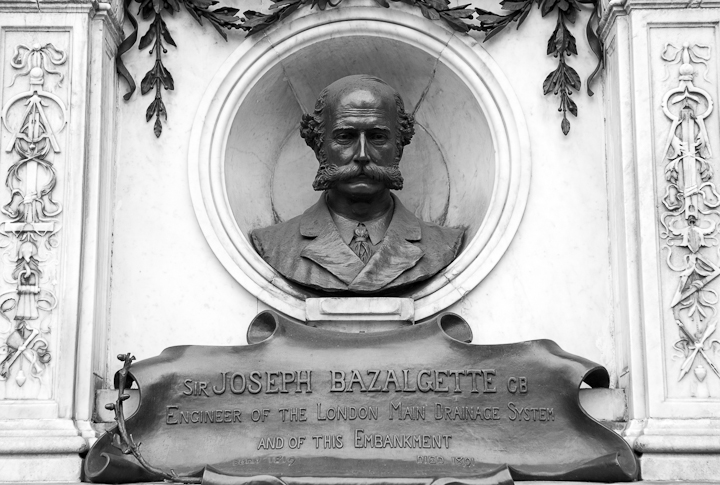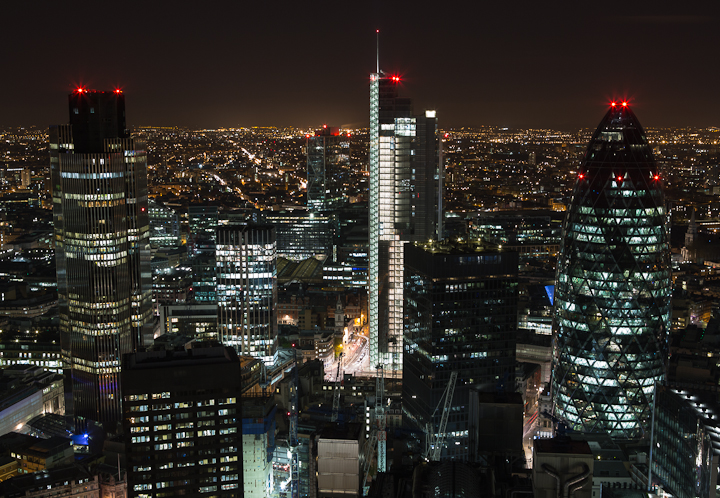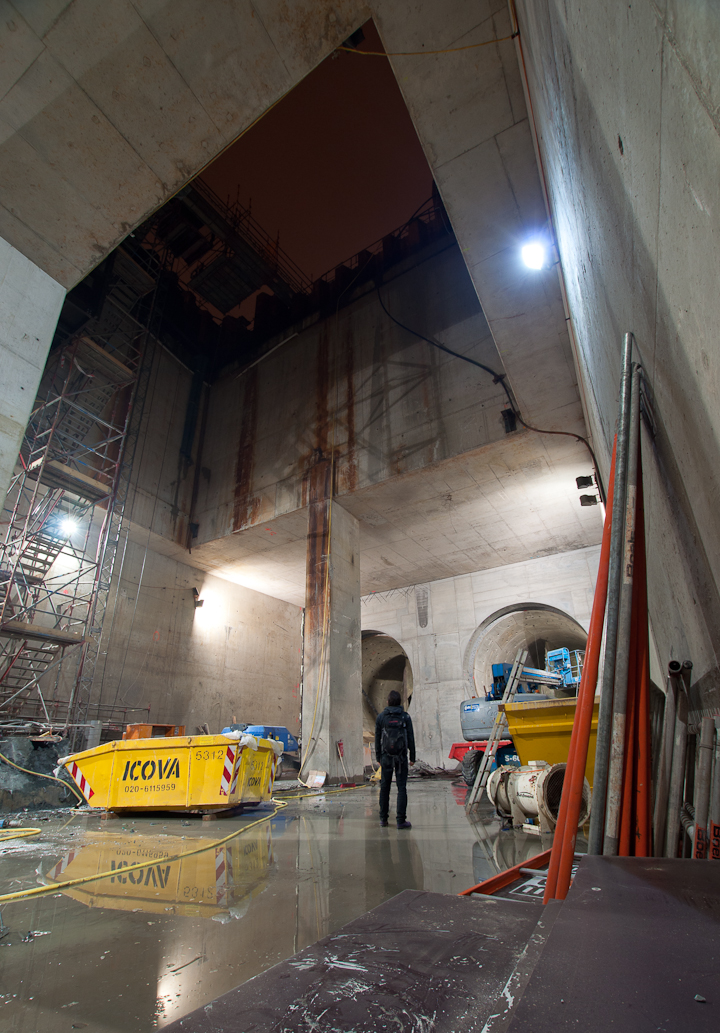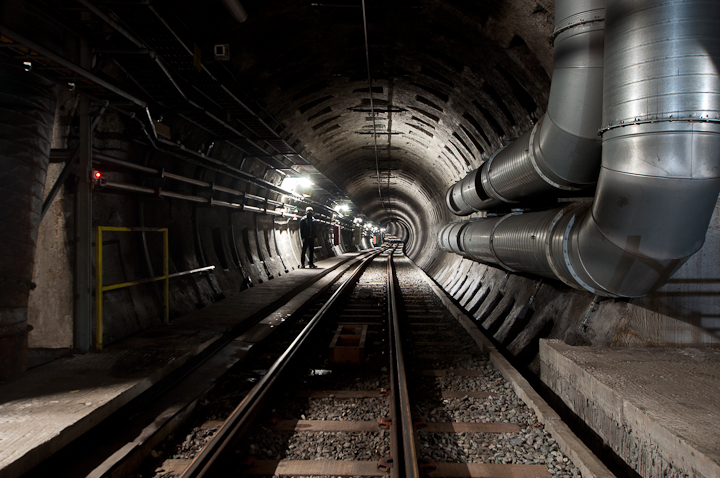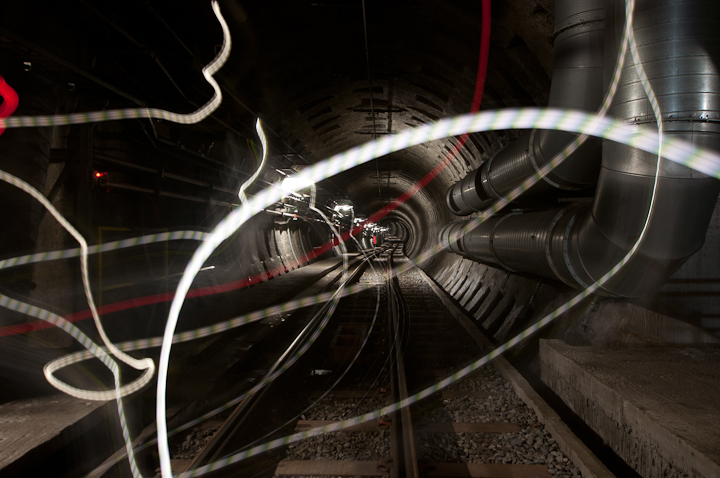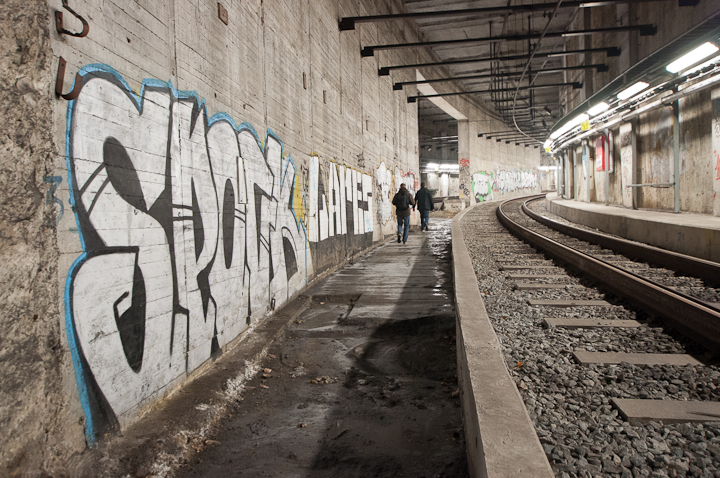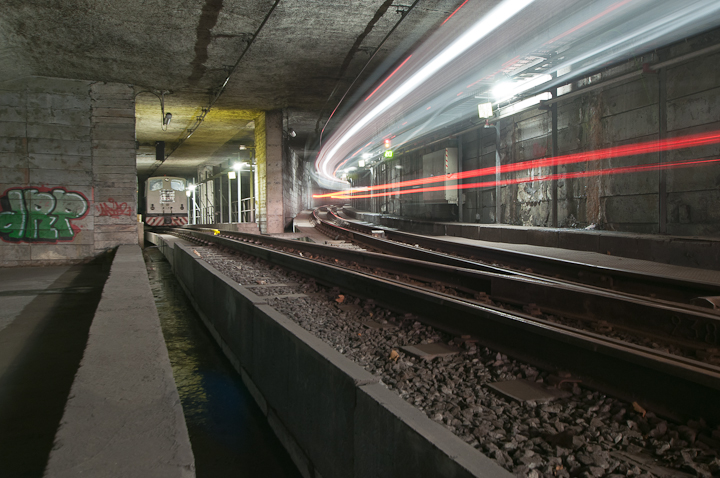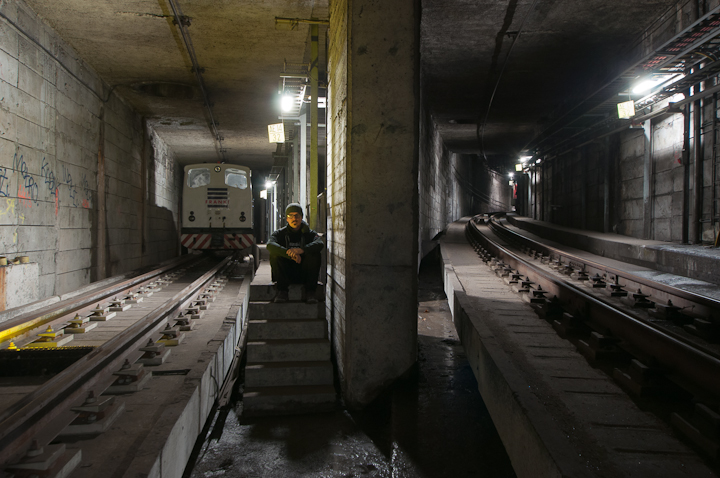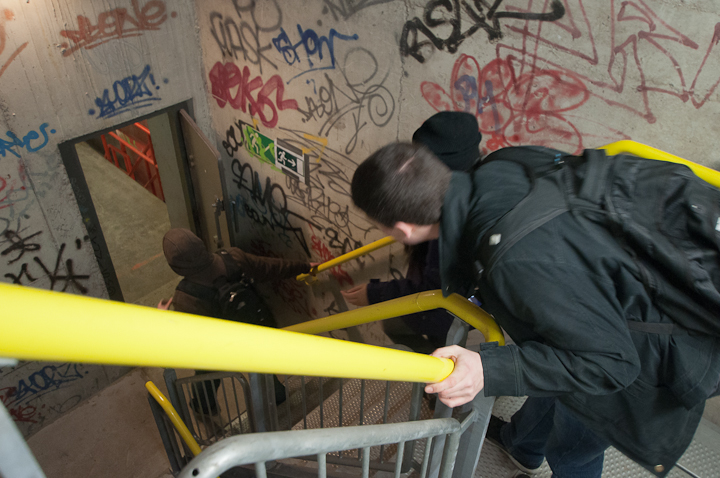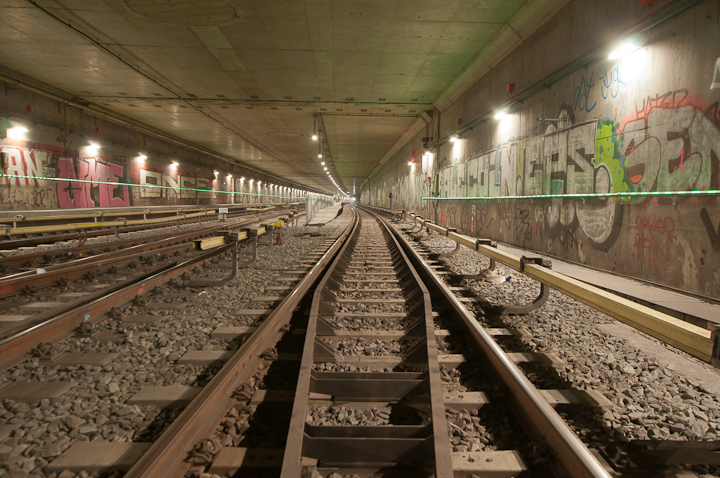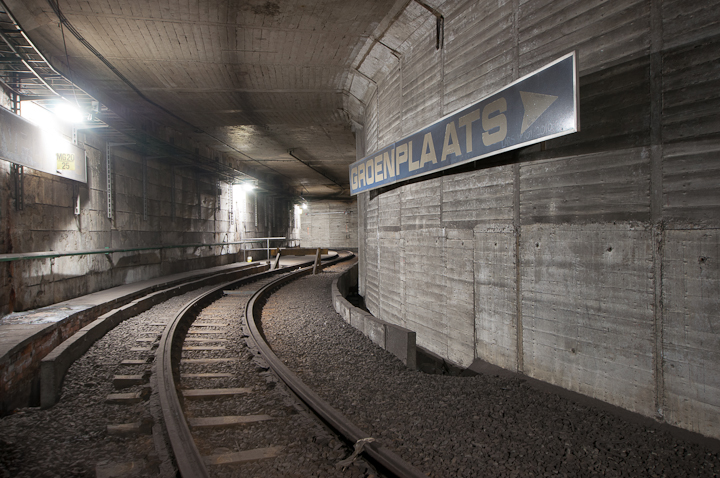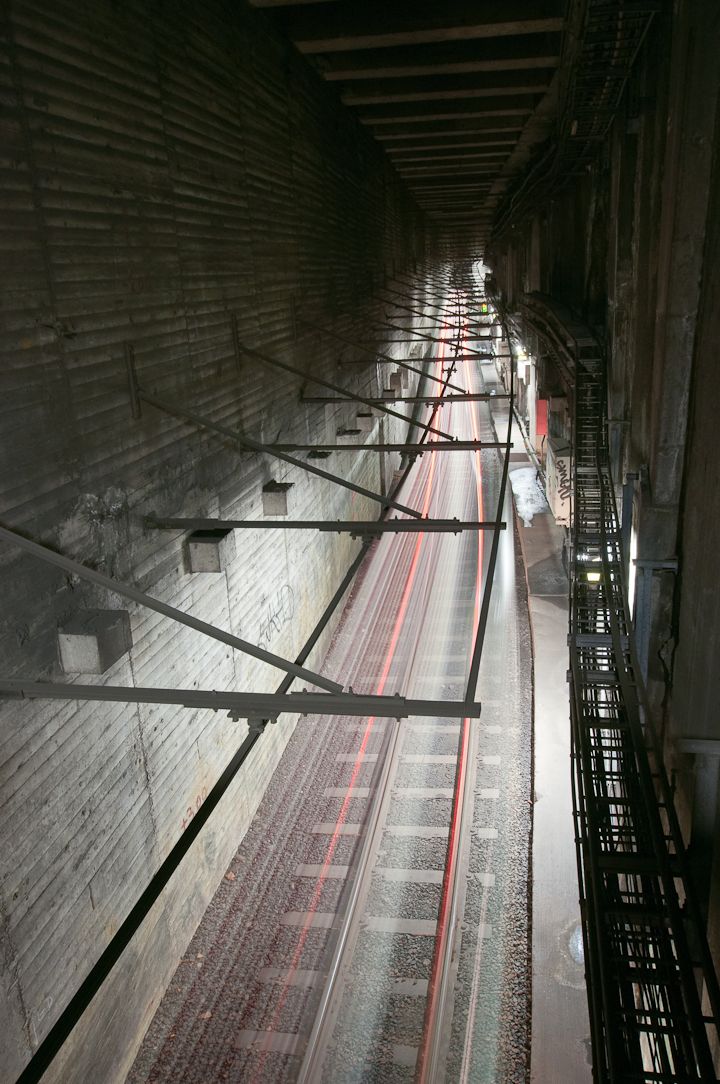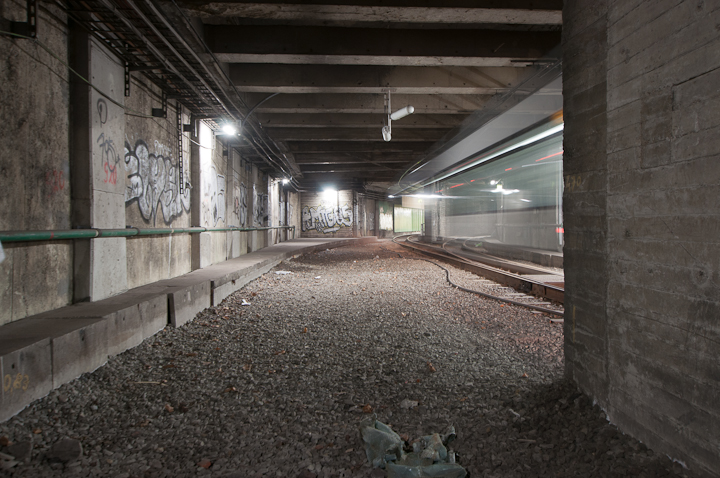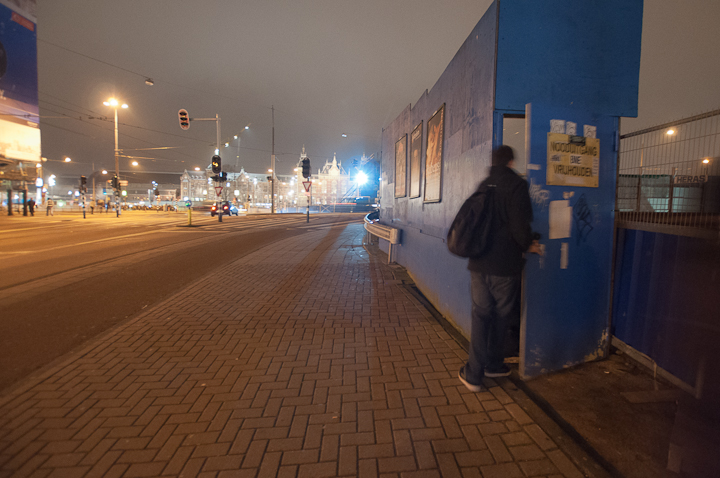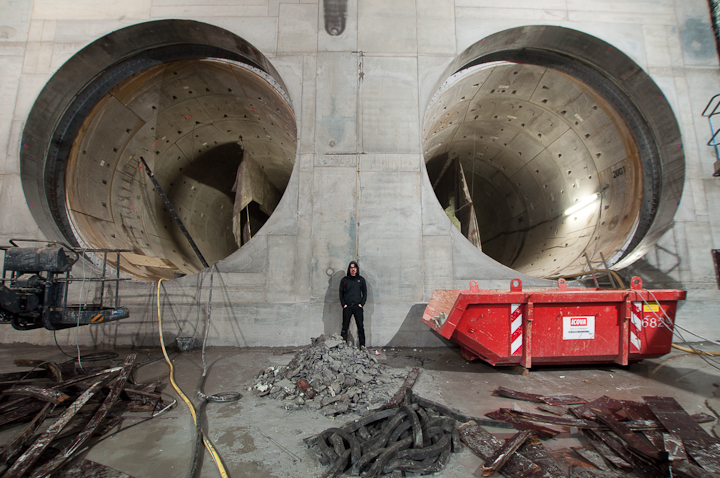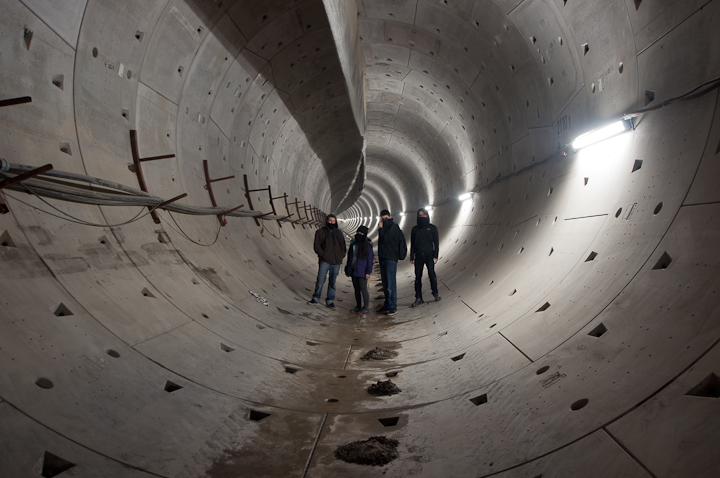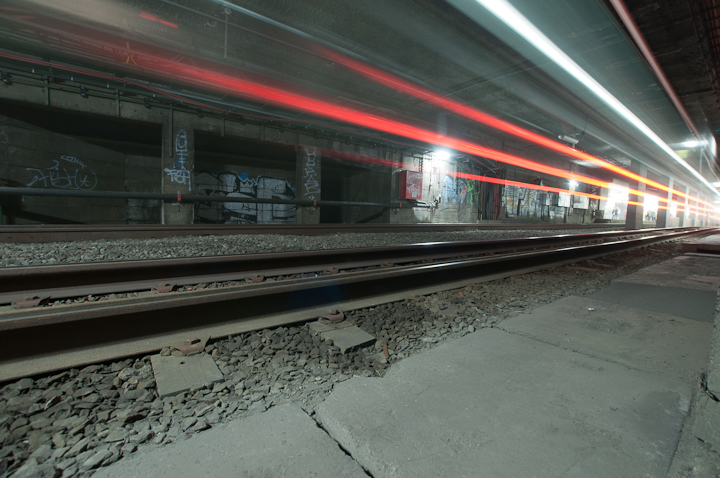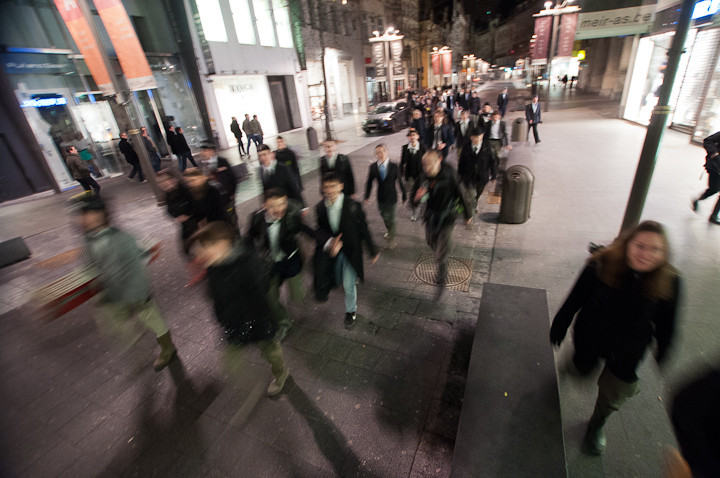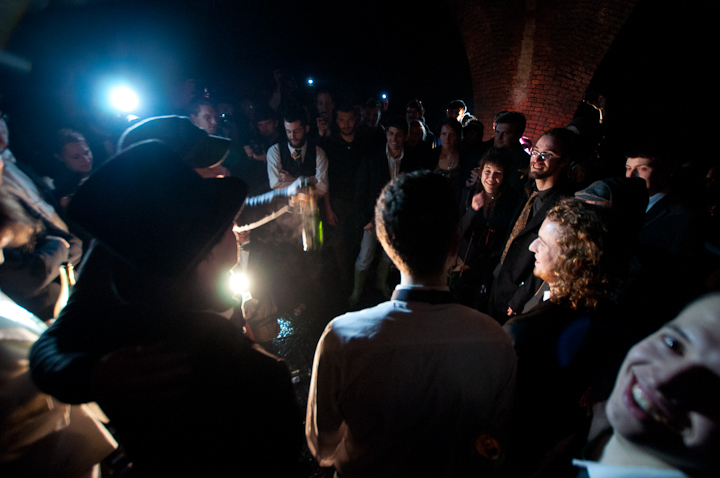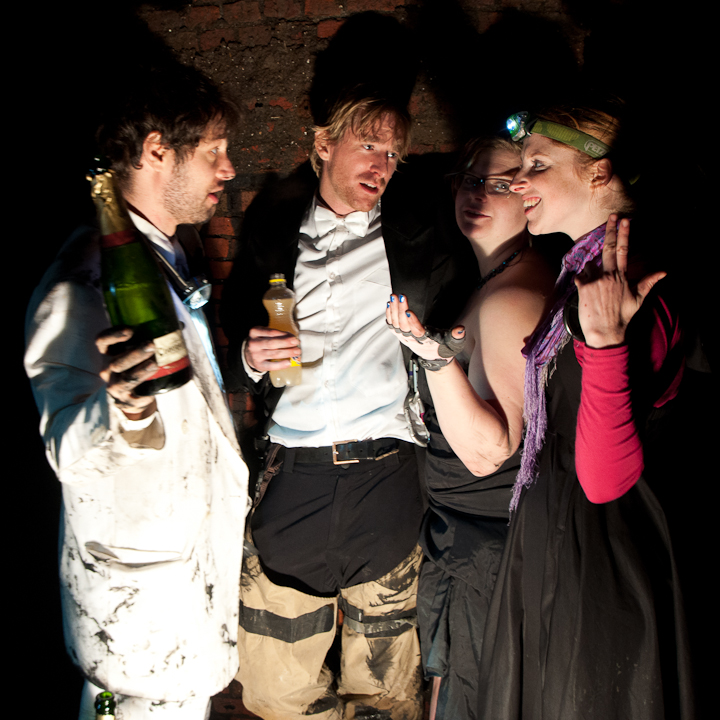A man who has never gone to school may steal from a freight car; but if he has a university education, he may steal the whole railroad. -Theodore Roosevelt
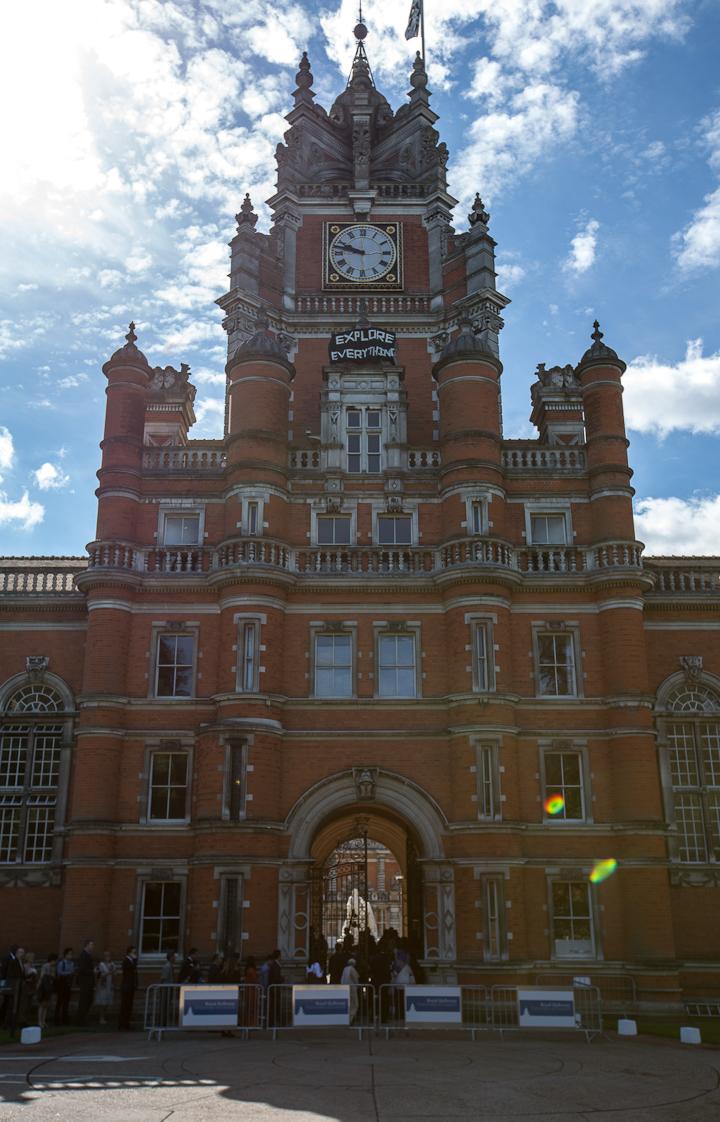
Look up
I have a few guiding principles to my life I always adhere to. The first, and most important, is that each year of my life must surpass the last. I have succeeded in that goal every year so far, though the last four have been particularly exceptional.
It was 2007 when I stumbled into the office of the eminent geographer Denis Cosgrove at UCLA. To my surprise, he asked me to sit in his chair as he laid down on the couch. He then said, staring at the ceiling, ‘So tell me why you want to do a PhD…’ I waxed on at length about my frustrations as an archaeologist. ‘I don’t want to be in control of people’s pasts, I want to act historical facilitator rather that an interpreter.’ He looked at me, waiting for more. ‘You know, what I’ve been doing just feels inauthentic and I think cultural geography might be a better home discipline for me.’ He laid there for a bit before he told me, ‘It would be great to have you as a student here but you must know I have stomach cancer and may not live through your PhD if you were accepted into the programme. I think you should also apply to Royal Holloway, University of London where I used to be and sometimes still teach. Call Tim Cresswell.’ I did, and that’s how my story at Royal Holloway began. Cosgrove knew I was too twisted to do a PhD in puritan America.
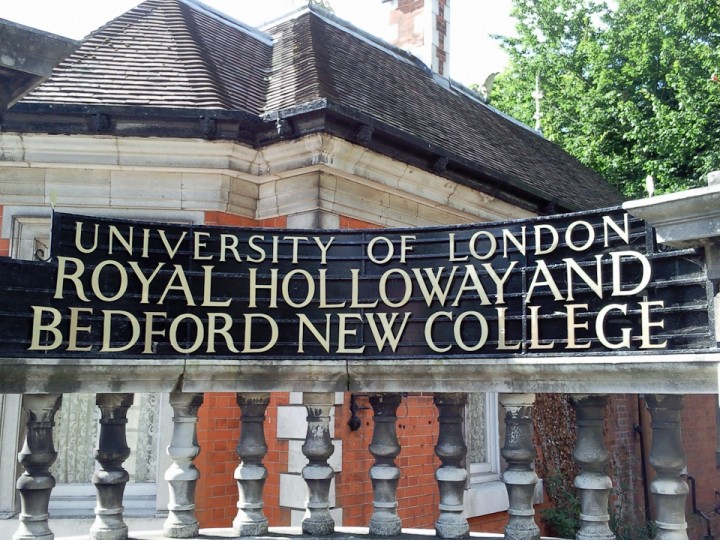
A journey
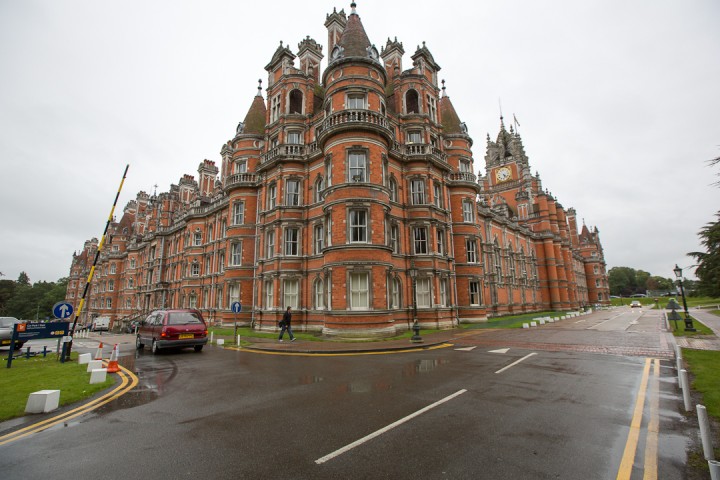
At an end
It’s been four years now since I began that journey and a few days ago, it officially ended. I made the move from Mr Garrett to Dr Garrett in my Royal Holloway wizard robes and smurf hat. Although Denis died a few years earlier, just as he had predicted, I can’t help but think that he would have been proud to see me standing there with my parents sipping champagne while my project participants snuck into the ceremonies to infiltrate the campus steam tunnels in ties and dresses. My parents, to my delight, laughed at the whole affair. I guess they probably expected as much and I’m glad they were there for the pomp, circumstance and usual antics.
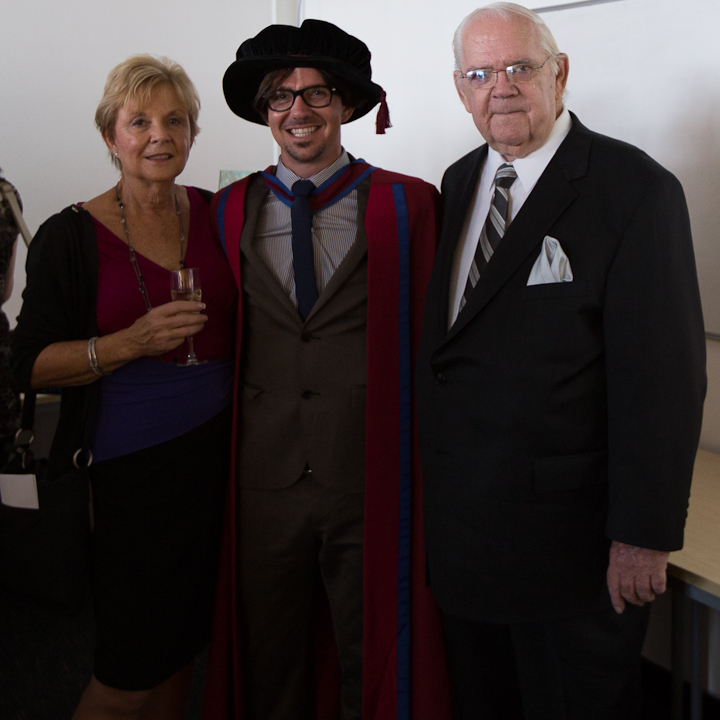
Gold
There are many people at Royal Holloway to thank for my time there. In particular, David Gilbert, Felix Driver and Alastair Pinkerton offered key advice during my PhD. Alice Christie kept me on track with pep talks every time I saw here that made sense of the world. Phil Crang took on the ‘fun job’ (as he calls it) of being my advisor, advising me to track down fresh articles and alerting me to exhibitions. He also had an eagle-eye for critical reading of my writing and an ability to cut right through my drifting prose to rip the heart out.
I owe a huge debt of gratitude Katherine Brickell not just for reading my work, inspiring me, keeping me on track, keeping me employed but for being my most trusted friend and collaborator. Most importantly, Tim Cresswell, as Denis well-knew, was the most well-suited supervisor I could have hoped for. As anyone who has done a PhD knows, your relationship with your supervisor is quiet special, it’s sort of like being adopted by another parent. Tim studied his PhD under Yi-Fu Tuan, who I suppose is a bit like my academic grandfather. From the 1960s when Tuan did his work, we have now moved from Space to Place to Place Hacking. We have bridged US and UK academia back and forth numerous times. We have also collectively inspired a lot of drama. It’s a great family to ride with. Almost as cool as the Garrett clan.
Back in the day, Tuan wrote that ‘human geography studies human relationships.’ It’s close to the mark but I respectfully suggest broadening that definition grandfather because good human geography also builds relationships. Ethnography is beautiful thing, you never know where it is going to go in the beginning and it can fracture in countless directions based on many different factors. I never could have expected that my time at RHUL would have led to the things it did. What we have done in the past four years, the community we built, was something truly exceptional.
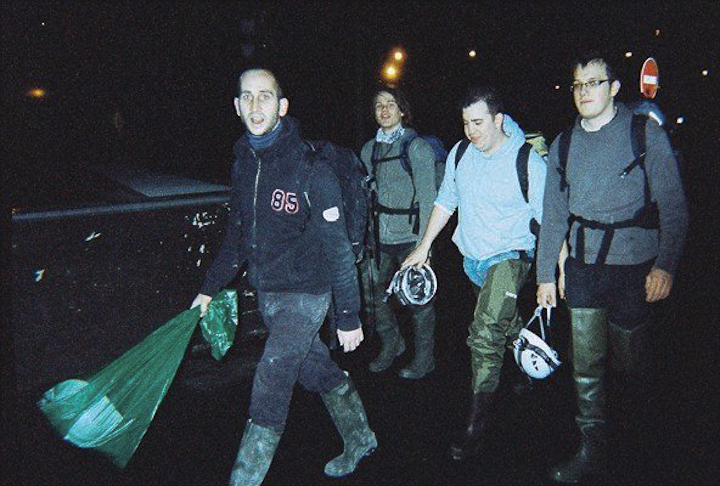
The LCC Old Guard
It was fitting then that the community we built with the support of Royal Holloway left something behind on graduation day to gel our legacy and make sure the university never forgets our four great years together. After considering our skill requirements, the perfect team stepped up for the job – Patch, Helen, Marc, Dan and Winch. Patch and I headed to ASDA for a king size black sheet and a bucket of emulsion and got painting. The next night, Dan and Marc rolled in at 2am and scaled the clock tower to strap on the banner. It lasted until 10:30am when I saw Olympics security personal trying to get it down with a long pole. They looked like they were enjoying themselves.
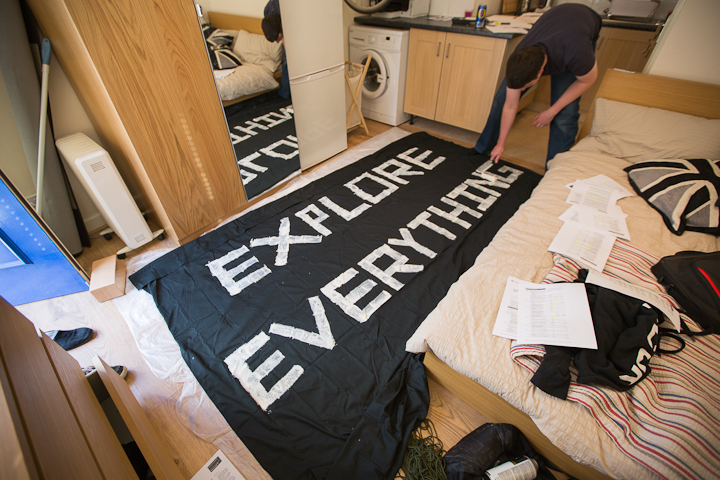
Patch on the roller
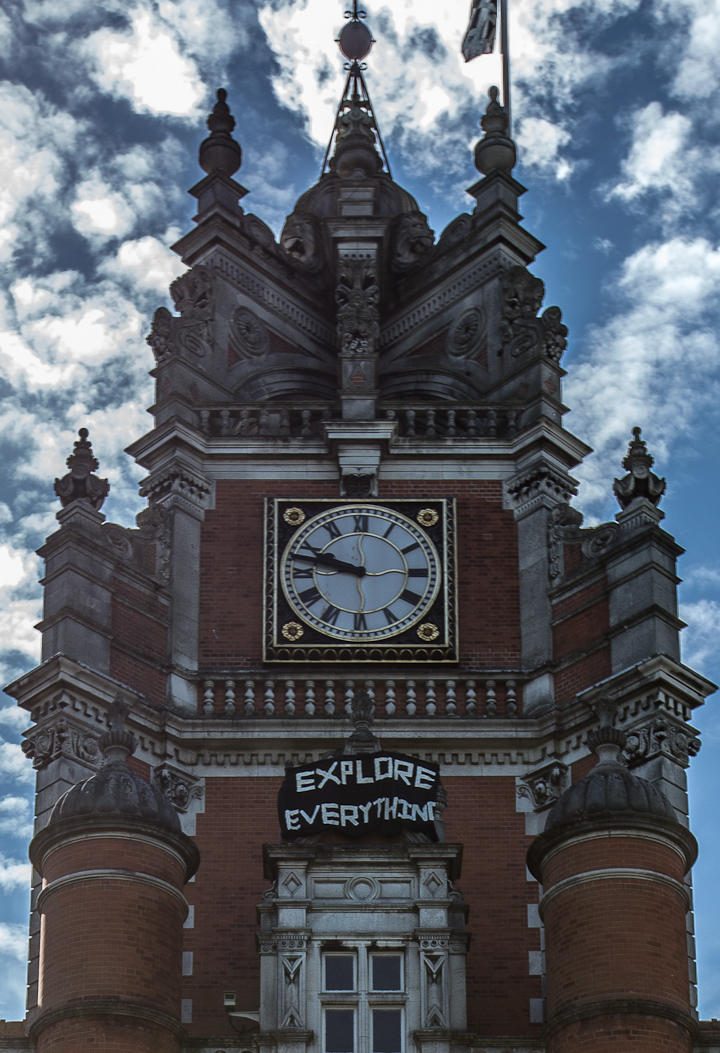
For a good cause
So yeah, I said the magic word – Olympics. Boo! I guess it’s well known by now that some of us were in and out of the Olympic park as we pleased during construction. G4S’s major security fuckups are not new news, I assure you. Royal Holloway is an official Olympic venue, with armed police and G4S personnel patrolling the campus and Founders building on total lockdown at night. Marc and Dan rolled out this banner 3 days before the 2012 Olympics swung into high gear and campus security had good reason to be embarrassed, even as I’m sure they can enjoy a good college prank as much as the next person. So here’s are the mission details…
Back in 2008, Marc Explo and Hydra cracked the steam tunnels underneath the campus with me – they run from the boiler house to underneath Founders. It was not long before we had gone down with other PhD students: Michael Anton, Ashley Dawkins and Amy Cutler.
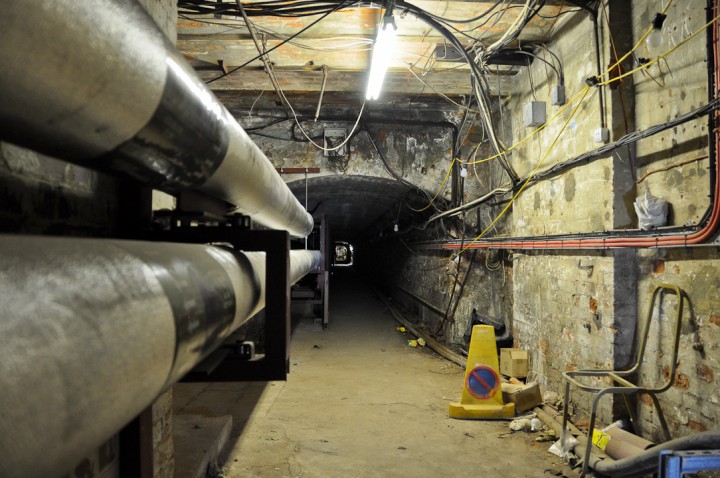
Hot and tight
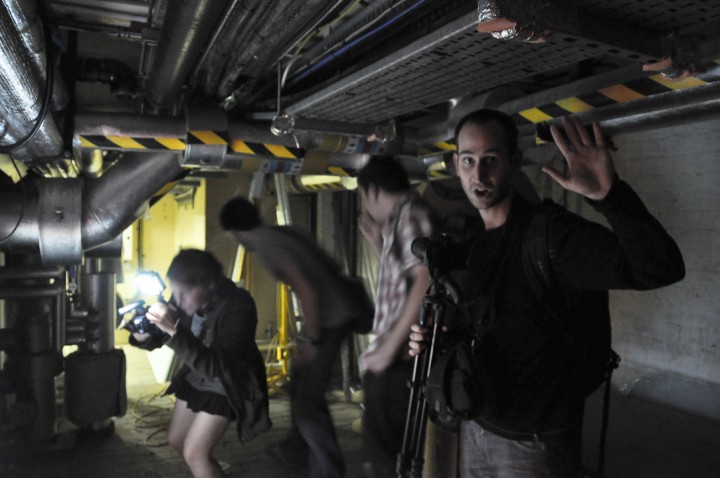
First bite
The year after, Mike and I went back in the tunnels with some new PhD students. Four years later, this is now a tradition for new geography students (and probably other departments – we can’t be the only one’s curious enough to look right?). Soon after we started thinking about the roof and spires, which we could now access at night through the steam tunnels.
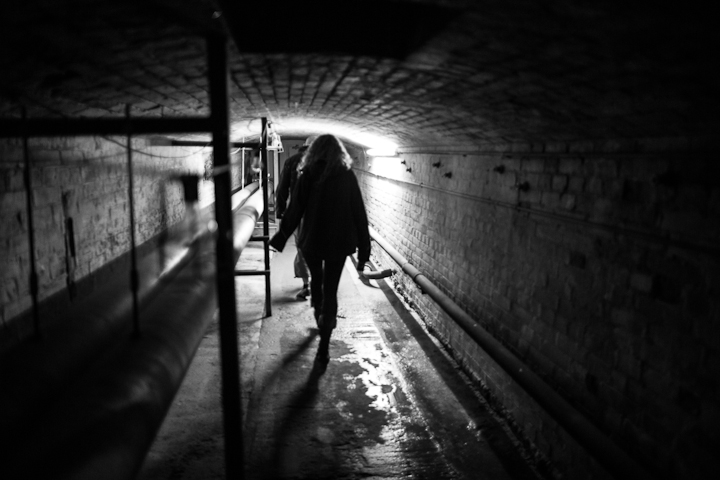
Step 1
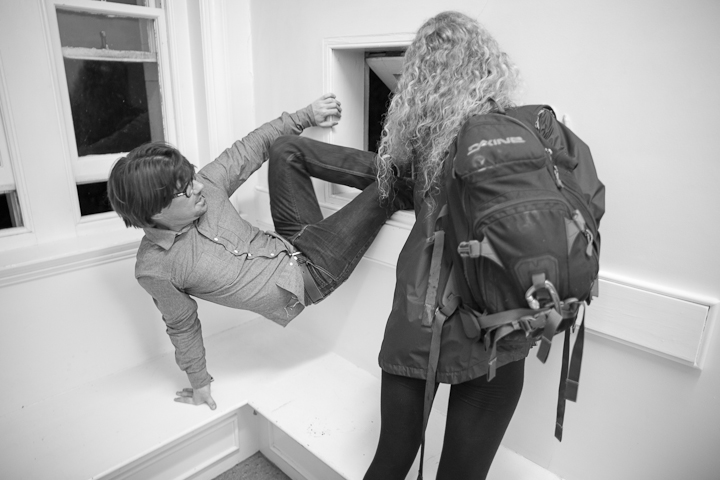
Step 2
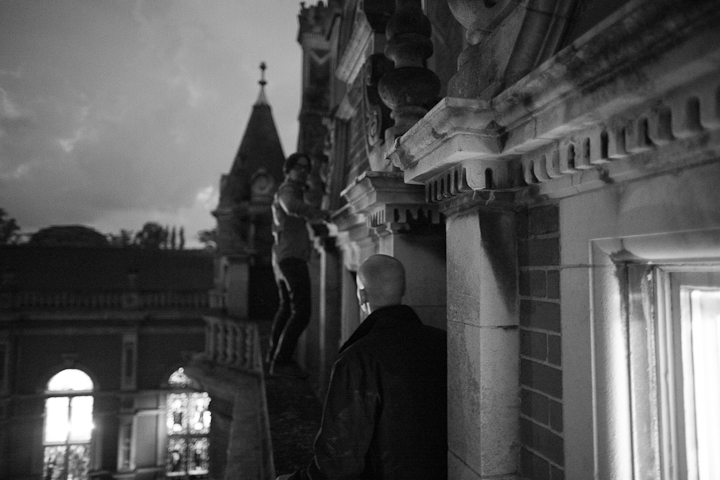
And now it’s cubed
The view from the roof was exceptional and all sort of new routes across Founder’s could be devised. Now that I am gone, I expect students to carry on exploring everything on campus. I would be highly disappointed if the next generation of students do not mark out some new routes. Then again, I have been pretty shocked at the apathetic response to the securitisation of our university campus by both staff and students over the last few months – anybody want to apply some critical thinking skills to that process? To those students who still have some courage, some climbing anchors would be very helpful in a few places. Get busy!
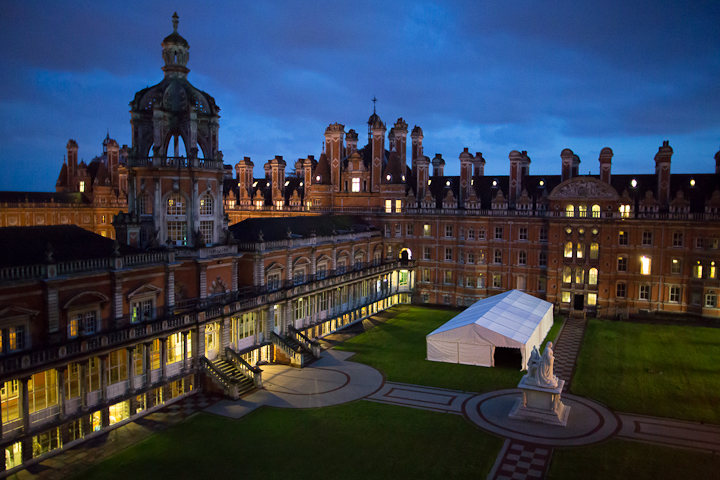
A route
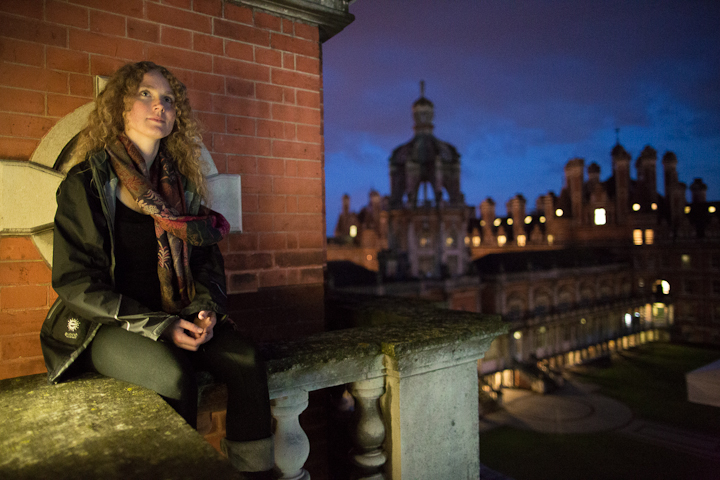
To glory
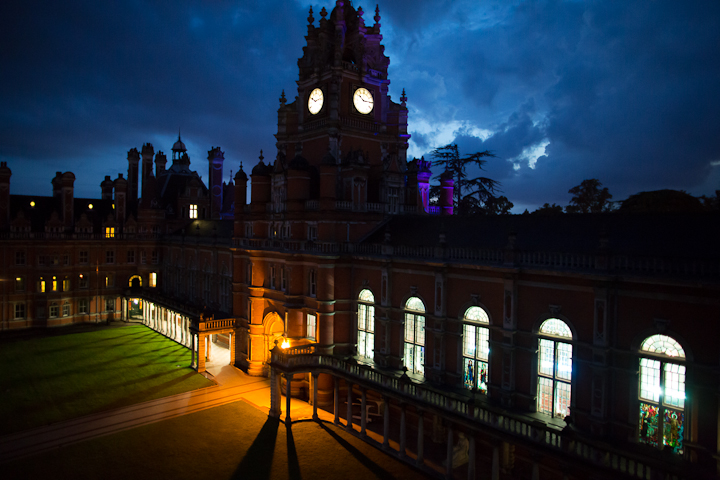
Requires delicacy
So, now that the PhD is over, a transition is taking place. I am actually sitting on a plane at Heathrow, ready to take off to Cambodia right now. Katherine Brickell and I will be working on a month-long project about domestic violence law using participatory video. When I get home at the end of August, it’s back to exploring (in 3 countries) until October.
Then, on October 1st, I am delighted to announce I will begin a new job amongst the dreaming spires at the University of Oxford as a Researcher in Technological Natures. While at Oxford, I will turn my thesis into a book with Verso, teach some subversive modules and conjure up my next big idea. So, against all odds, it appears that 2012 will top 2011 and 2013 is looking very bright indeed. Thanks to everyone who has followed along the way. Carry on exploring everything, the plane is taking off. I’m out.
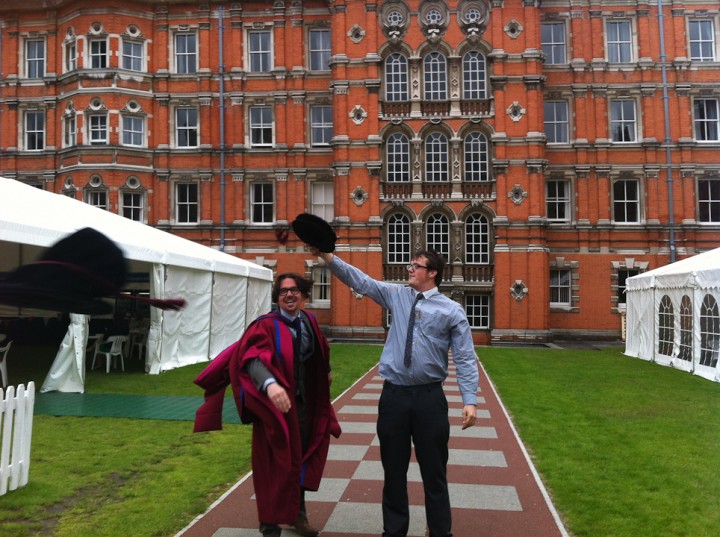
Shizzle (photo by Harriet Hawkins)
Good luck with that Olympics thang by the way London, I’m sure it’s all going to be great fun.
